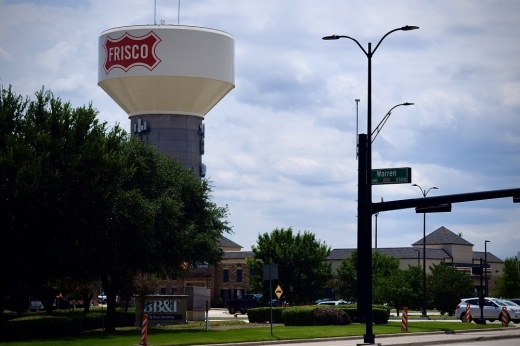In 2020, Frisco saw a 1.1 billion gallon increase in annual water consumption, according to the city’s yearly water quality report. The average daily water usage per person, however, remained relatively steady.
Last year, water use in Frisco averaged 158 gallons per person a day, which yearly reports indicate is 1 gallon up from 2019. Kevin Grant, assistant director of public works, said that while the statistic is above the state-recommended goal of 140, a mostly static average usage is a good sign for water conservation.
“If the gallons per person per day is staying the same, then our water conservation efforts are working,” Grant said. “We've just got more people.”
“It's going to be difficult for a city as affluent as Frisco to reach [140 gallons per person a day], just because of the number and size of the homes,” Grant said. “The irrigation systems, the number of pools ... when you think about the state as a whole, Frisco is probably way, way above average in those kinds of amenities.”
Frisco draws treated water from the North Texas Municipal Water District, and Grant said the district is consistently anticipating higher demand in future years.
The addition of Bois d’Arc Lake in Fannin County, the first major reservoir constructed in Texas in nearly 30 years, will help supply water to meet demands for the growing region, according to the 2020 report. Water delivery is scheduled to begin next year.
Despite the new reservoir, Grant said that personal conservation is a vital piece of meeting higher demand for water in coming years. A higher-than-average amount of precipitation in recent years has kept strain on the North Texas water supply at bay, he said.
The assistant director said that compared to extreme drought conditions in 2010, when he said Frisco strictly enforced water conservation measures, the city is efficiently curbing needless water usage.
“The faster that the whole state of Texas grows, the more precious our water becomes,” Grant said. “We've got a very good water system. We've been very good stewards of our resource, and we're trying to stay there.”





